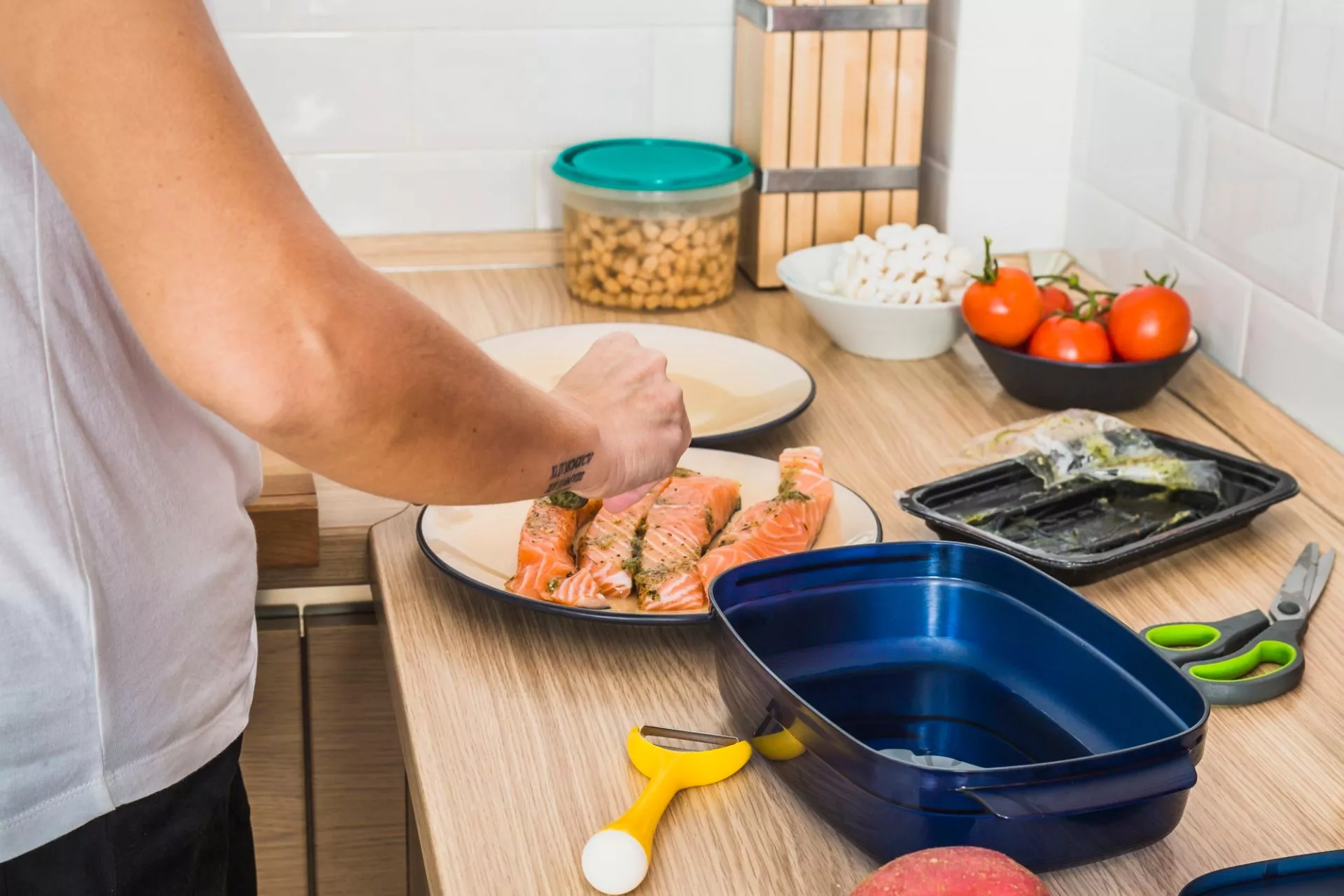Choose the Right Type of Fish
When it comes to cooking fish, choosing the right type of fish is essential. Some fish are more delicate than others and require different cooking methods. For example, firm fish like salmon and tuna are perfect for grilling or searing, while delicate fish like sole and tilapia are better suited for baking or pan-frying.
Buy Fresh Fish
The freshness of the fish you buy is also crucial when it comes to cooking fish. Fresh fish has a bright, clear eye, a shiny skin, and a firm texture. When purchasing fish, be sure to check the label or ask your fishmonger when the fish was caught. If you're not sure how to tell if the fish is fresh, don't hesitate to ask the fishmonger for help.
Prepare Your Fish
Before cooking your fish, it's essential to prepare it properly. Start by rinsing the fish under cold water and patting it dry with a paper towel. If your fish has any scales, use a scaler or the back of a knife to remove them. If your fish has any bones, use tweezers or pliers to remove them.
Use the Right Cooking Method
The cooking method you choose will depend on the type of fish you're cooking. As we mentioned earlier, firm fish like salmon and tuna are perfect for grilling or searing, while delicate fish like sole and tilapia are better suited for baking or pan-frying. Here are a few cooking methods to consider:
- Grilling: Grilling is a great way to cook firm fish like salmon and tuna. Preheat your grill to medium-high heat, brush the fish with a little bit of oil, and grill for 4-5 minutes per side.
- Searing: Searing is another great way to cook firm fish like salmon and tuna. Heat a little bit of oil in a pan over medium-high heat, and sear the fish for 3-4 minutes per side.
- Baking: Baking is a great way to cook delicate fish like sole and tilapia. Preheat your oven to 375°F, brush the fish with a little bit of oil, and bake for 12-15 minutes.
- Pan-Frying: Pan-frying is another great way to cook delicate fish like sole and tilapia. Heat a little bit of oil in a pan over medium-high heat, and pan-fry the fish for 3-4 minutes per side.
Use a Meat Thermometer
Using a meat thermometer is a great way to ensure that your fish is cooked to perfection. The USDA recommends cooking fish to an internal temperature of 145°F. Insert the meat thermometer into the thickest part of the fish to check the temperature. If the temperature is below 145°F, continue cooking the fish until it reaches the proper temperature.
Season Your Fish
Seasoning your fish is an essential part of the cooking process. You can season your fish with a variety of herbs and spices, depending on your preference. Some popular options include salt, pepper, garlic, lemon juice, and dill. To ensure that the seasoning sticks to the fish, rub the herbs and spices directly onto the fish or mix them with a little bit of oil and brush the mixture onto the fish.
Don't Overcook Your Fish
One of the most common mistakes people make when cooking fish is overcooking it. Overcooked fish can be dry and tough, so it's essential to pay close attention to the cooking time. As we mentioned earlier, using a meat thermometer is an excellent way to ensure that your fish is cooked to perfection.
Let Your Fish Rest
Once your fish is cooked, it's essential to let it rest for a few minutes before serving. This allows the juices to redistribute, ensuring that your fish is juicy and tender. To let your fish rest, remove it from the heat source and cover it with a piece of foil for 5-10 minutes.
Conclusion
In conclusion, cooking fish can be intimidating, but it doesn't have to be. By following these tips and tricks, you can cook fish like a pro and impress your friends and family with delicious, perfectly cooked fish every time. Remember to choose the right type of fish, buy fresh fish, prepare it properly, use the right cooking method, use a meat thermometer, season your fish, don't overcook it, and let it rest before serving. With a little bit of practice and patience, you'll be a fish-cooking expert in no time.

 15 Mediterranean Diet Breakfast Recipes in 10 Minutes
15 Mediterranean Diet Breakfast Recipes in 10 Minutes American Classics You Can Easily Make at Home
American Classics You Can Easily Make at Home



